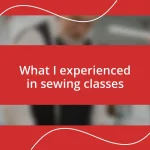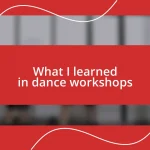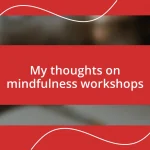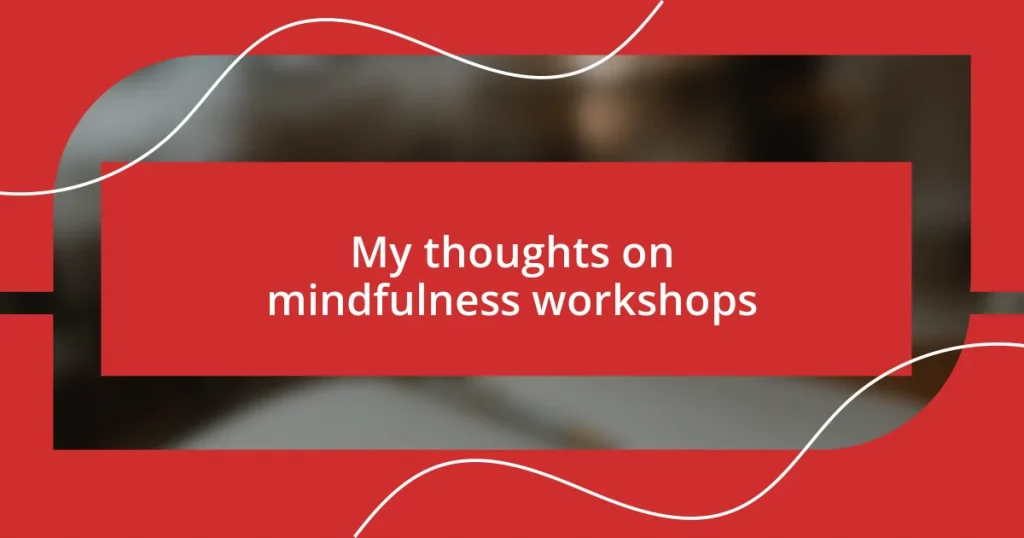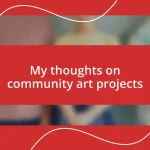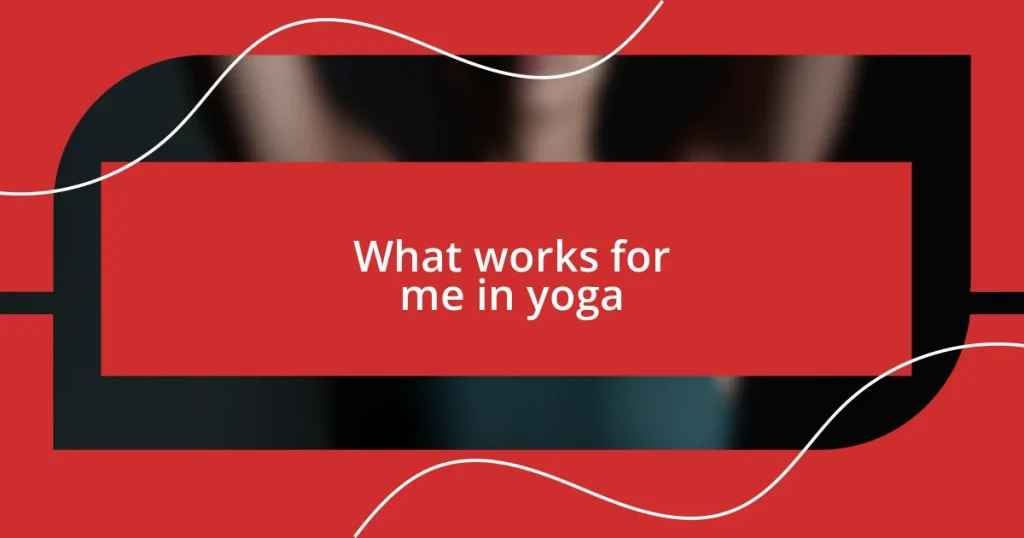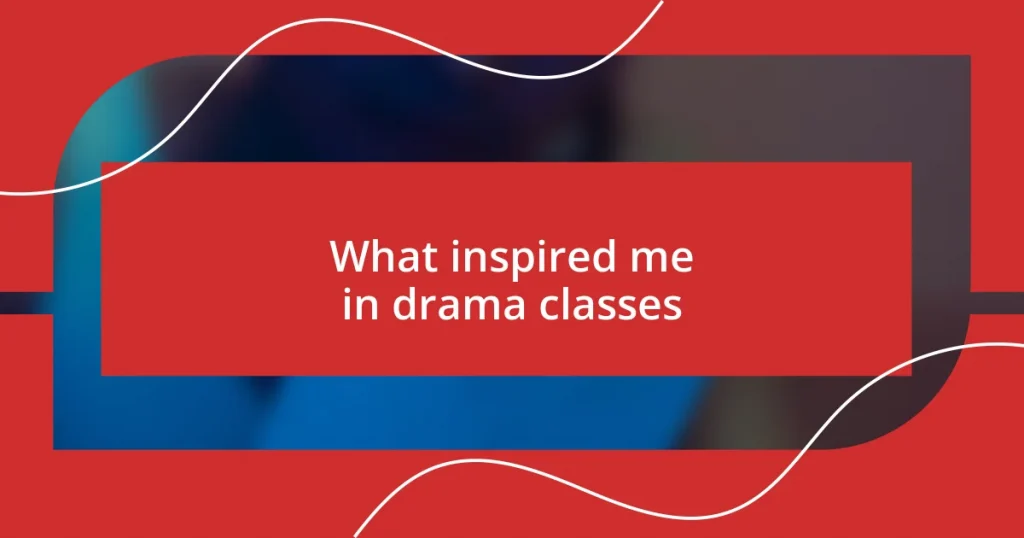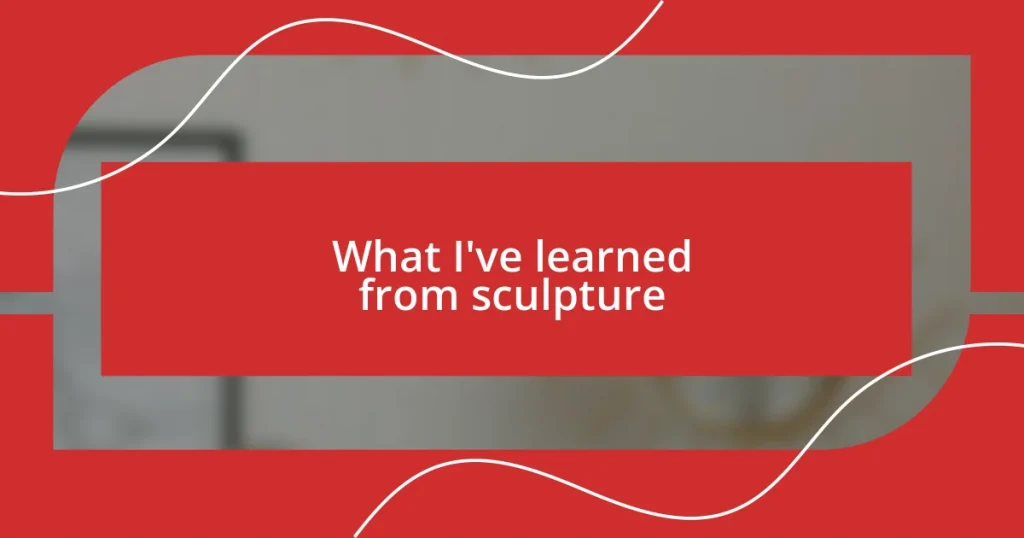Key takeaways:
- Mindfulness workshops provide practical tools like meditation and breathing exercises to help reduce stress and cultivate present-moment awareness.
- Key benefits include emotional resilience, enhanced focus and clarity, and the development of a supportive community among participants.
- Continuing mindfulness practices like meditation, mindful walking, and journaling after workshops greatly enhances personal growth and everyday awareness.
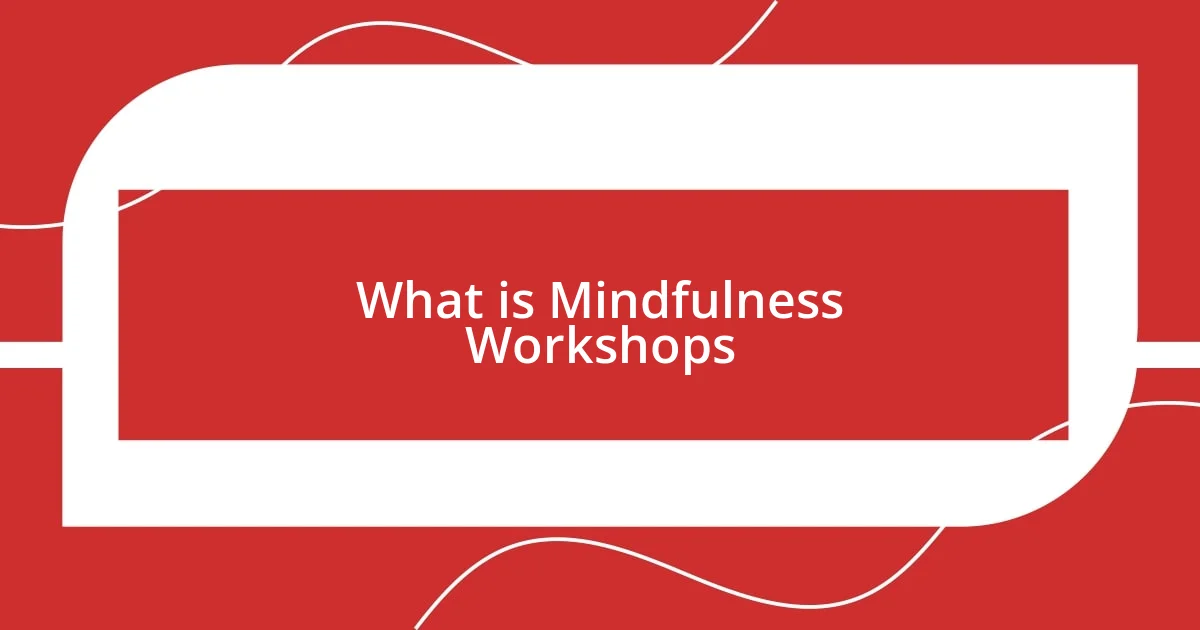
What is Mindfulness Workshops
Mindfulness workshops are structured sessions designed to help individuals cultivate present-moment awareness and reduce stress. In my experience, these workshops often combine techniques like meditation, breathing exercises, and mindful movement to create a holistic approach to well-being. Have you ever felt overwhelmed by your thoughts? Workshops like these provide tools to help manage that mental clutter.
During one workshop I attended, I was surprised by how deeply I connected with myself and others through simple exercises. I remember sitting in a circle, sharing my experiences while listening to others. It was a powerful reminder that we’re not alone in our struggles. The sense of community often enhances the learning process, don’t you think?
These gatherings usually focus on practical skills you can integrate into your daily life. For instance, we practiced mindful eating one day—after savoring every bite of our lunch, I found myself appreciating my meals more than ever. Mindfulness workshops are not just about theory; they’re about living with intention and presence in every moment.
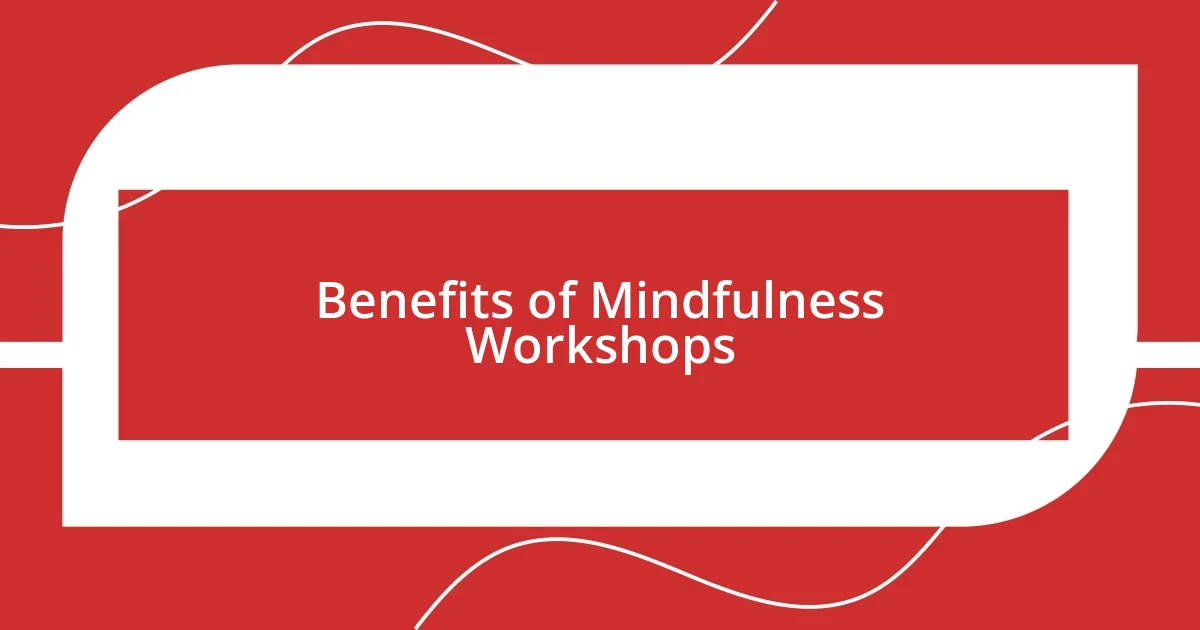
Benefits of Mindfulness Workshops
Mindfulness workshops offer a plethora of benefits that extend beyond the sessions themselves. One significant advantage I’ve noticed is the development of emotional resilience. Learning to be present with my feelings rather than reacting impulsively has been transformative. Remember that time when stress hit hard, and I felt overwhelmed? Practicing mindfulness taught me to pause, breathe, and respond more thoughtfully.
Another compelling benefit is the enhancement of focus and clarity. I recall a particularly hectic week when distractions felt insurmountable. Instead of spiraling into anxiety, I turned to the techniques I learned in a mindfulness workshop—simple five-minute breathing exercises helped me regain focus. It’s intriguing how just a short amount of dedicated practice can lead to significant improvements in how we manage our work and personal lives.
Finally, the sense of belonging that comes from sharing experiences with fellow participants is invaluable. During one workshop, we paired up for a guided meditation, and I found myself opening up about my struggles in a way I had never done before. It was enlightening to hear others speak about their journeys. This connection fosters a supportive environment, making mindfulness feel less like a solitary practice and more like a shared journey.
| Benefit | Description |
|---|---|
| Emotional Resilience | Ability to handle stress and emotions better through present-moment awareness. |
| Focus and Clarity | Improved concentration and mental clarity, leading to better decision-making. |
| Sense of Community | Building connections with others, enhancing support and understanding. |
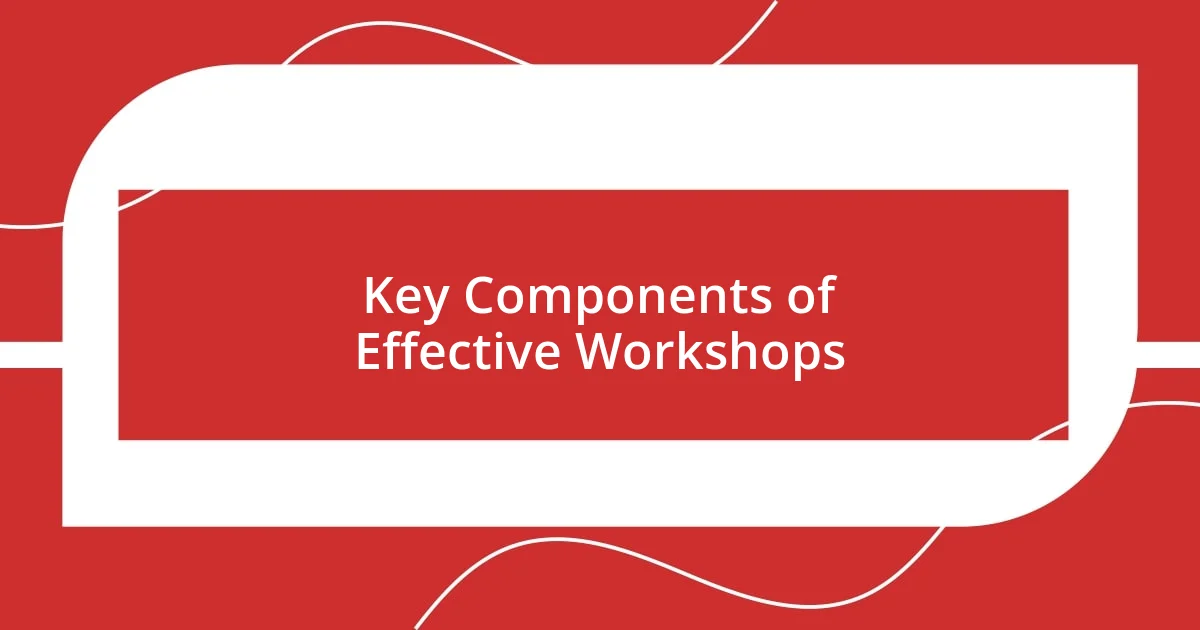
Key Components of Effective Workshops
Effective mindfulness workshops rely on several key components that enhance the learning experience. From my participation in these sessions, I’ve found that skilled facilitators make a significant difference. They not only guide participants but also create a safe space for sharing. During one workshop I attended, the facilitator’s warmth and openness encouraged everyone to express their thoughts without fear of judgment. It felt like a breath of fresh air, allowing vulnerability to flourish.
Here are some essential elements that can contribute to a successful workshop:
- Skilled Facilitators: They help foster connection and understanding among participants.
- Interactive Exercises: Activities like group meditation or journaling promote engagement.
- Personal Sharing: Encouraging participants to share their experiences leads to a deeper understanding.
- Clear Structure: A well-planned agenda helps keep the session focused yet flexible.
- Follow-Up Resources: Providing additional materials post-workshop supports continued practice.
Another critical aspect worth noting is the incorporation of diverse practices that cater to different learning styles. In a workshop I attended, we explored various mindfulness techniques—from body scans to nature walks. Each activity resonated differently with participants, and I enjoyed observing the varied responses; some found solace in quiet meditation, while others thrived during the active exercises. That diversity not only kept the energy dynamic but also allowed participants to find techniques they might want to explore further on their own.
Effective workshops maximize engagement through:
- Variety of Techniques: Different practices appeal to various preferences.
- Group Dynamics: Built-in space for small group interactions fosters connection.
- Feedback Mechanisms: Encouraging participant feedback during and after workshops enhances the experience.
- Mindfulness in Everyday Life: Real-life applications help participants integrate concepts into daily routines.
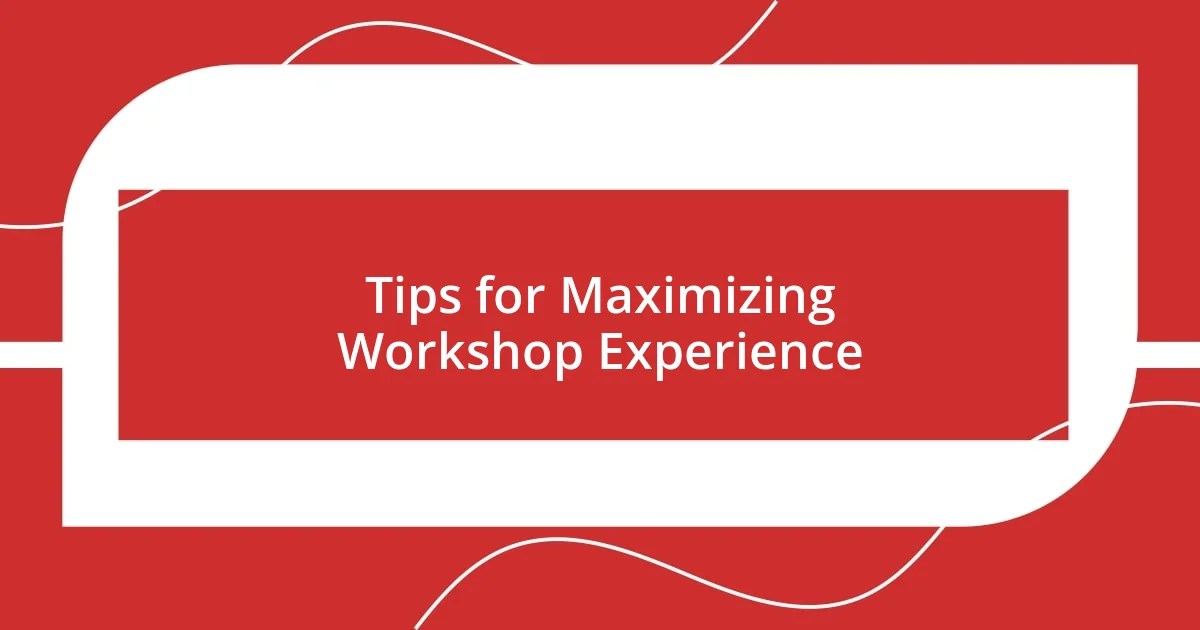
Tips for Maximizing Workshop Experience
Maximizing your experience in a mindfulness workshop is all about preparation and openness. One tip that has worked wonders for me is to set clear intentions before the workshop begins. I often take a moment to reflect on what I hope to gain from the experience. Whether it’s learning a specific breathing technique or simply enhancing my emotional awareness, having a goal helps me stay focused throughout the session. Have you ever gone to a workshop without a clear aim? It can leave you feeling a bit lost.
Engagement during the workshop is crucial. I remember a time when I actively participated by asking questions and sharing my thoughts. It transformed the experience for me. While initially, I felt a bit vulnerable, the act of sharing allowed me to connect with others in a profound way. When was the last time you tried stepping out of your comfort zone? You might be surprised by how much deeper your connections can become.
Lastly, don’t underestimate the power of reflection after the workshop. I like to take some quiet time to journal about what I learned and how I felt during the sessions. This practice not only solidifies my understanding but also allows me to track my progress over time. Have you ever noticed how insights can fade shortly after an experience? Taking the time to reflect ensures that those valuable lessons stay with you long after the workshop concludes.
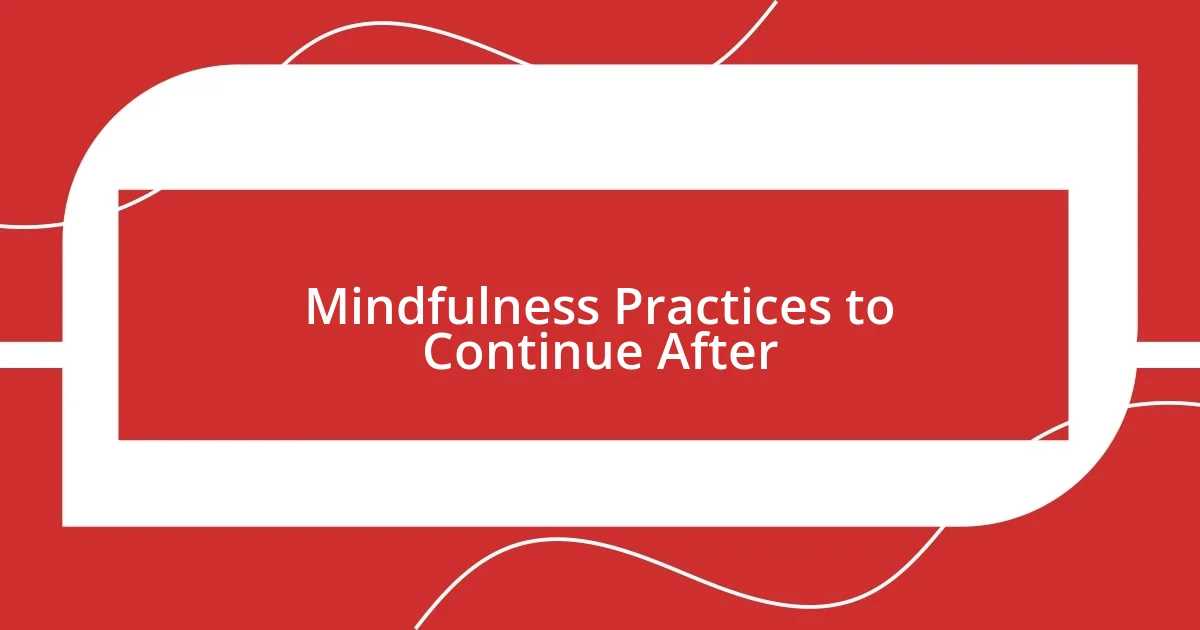
Mindfulness Practices to Continue After
Continuing with mindfulness practices after a workshop can greatly enhance the benefits you’ve gained. One technique I’ve found really grounding is daily mindfulness meditation. I started with just five minutes a day, sitting quietly and focusing on my breath. Initially, I struggled to sit still, but over time, I found that creating that pocket of calm helped clear my mind and improve my focus throughout the day. Have you ever tried dedicating a specific time to just breathe and be? It can be a game-changer.
Another practice that has enriched my routine is mindful walking. I often take my lunch breaks outdoors, focusing on the sensations of my feet touching the ground and the environment around me. The gentle rustling of leaves or the feel of the sun on my skin can transform a simple walk into a mini retreat from daily stress. Did you know that just a few moments of mindful walking can spark creativity? It opens up space in your mind to think differently.
Additionally, journaling has become a treasured practice for me. After workshops, I regularly jot down thoughts that arise, especially moments of insight or emotional clarity. By capturing these reflections on paper, I reinforce my learning and cultivate a deeper understanding of my feelings. Have you considered how expressing your thoughts can provide clarity in your life? I promise it’s worth the time—sometimes, it’s like turning on a light in a previously dim room.
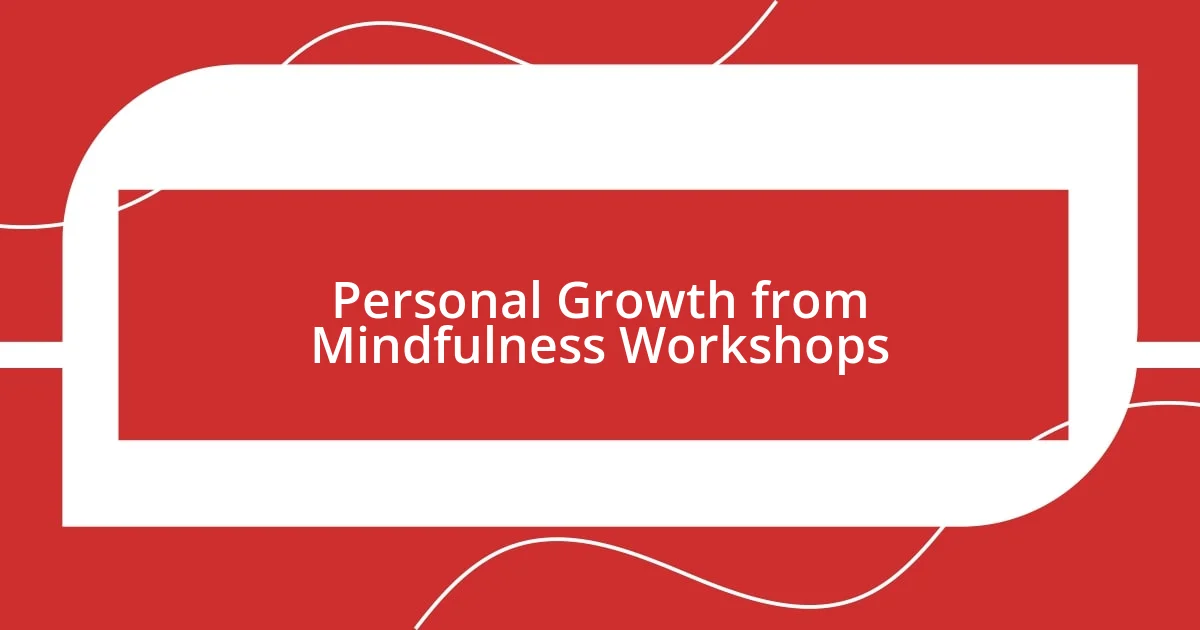
Personal Growth from Mindfulness Workshops
Mindfulness workshops have the incredible ability to catalyze personal growth in ways I never imagined. There was a moment during one workshop when a guided visualization took me deep into my feelings about anxiety. It was eye-opening to confront these emotions head-on rather than just brushing them aside. Have you ever experienced such a breakthrough? That moment made me realize that true growth often begins when we are willing to face our discomfort.
Another significant shift I’ve noticed is in my ability to be present. After attending a few workshops, I found myself more aware of the small joys in everyday life—like the warmth of a cup of tea in my hands or the gentle laughter of a friend. This transformation happened gradually but consistently. I began to ask myself, why was I rushing through moments that could bring joy? Embracing mindfulness taught me to savor these experiences, enriching my daily routine with a newfound appreciation.
Connecting with others during these workshops also played a pivotal role in my personal development. I remember sharing a heartfelt story that reflected my struggles with self-judgment. In return, I received such warmth and understanding from my peers. It felt liberating to be vulnerable in a safe space. Have you ever felt the power of shared experiences? That moment reinforced for me that personal growth often flourishes in a community, where we can learn from one another’s journeys.





